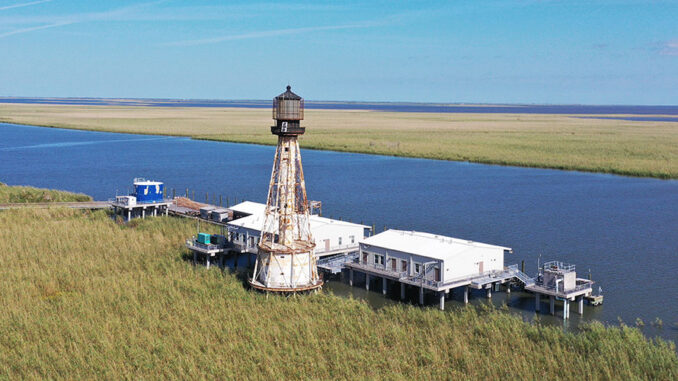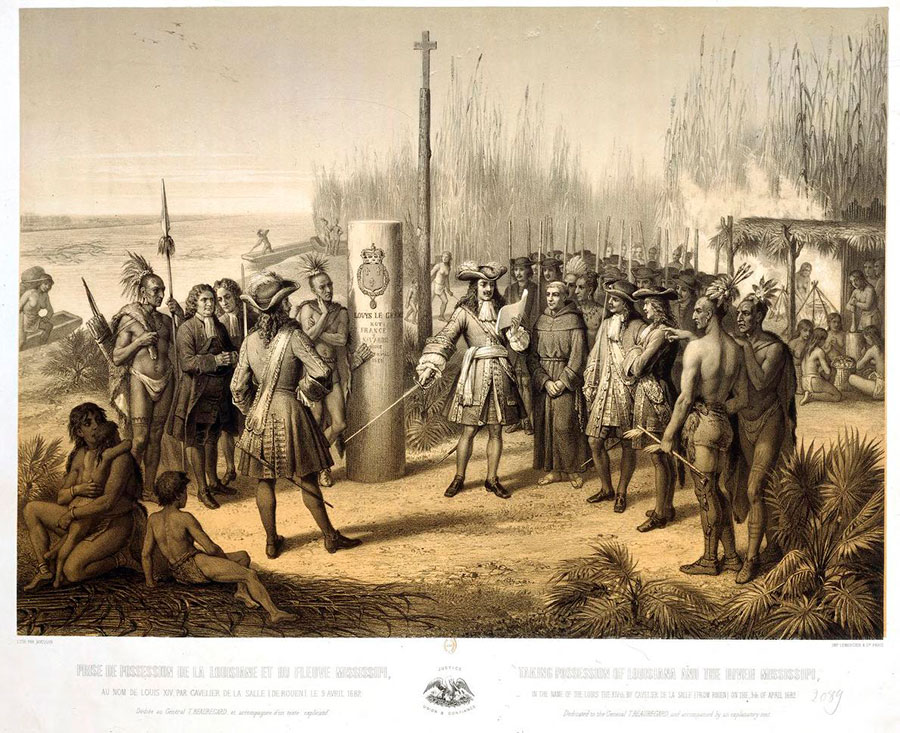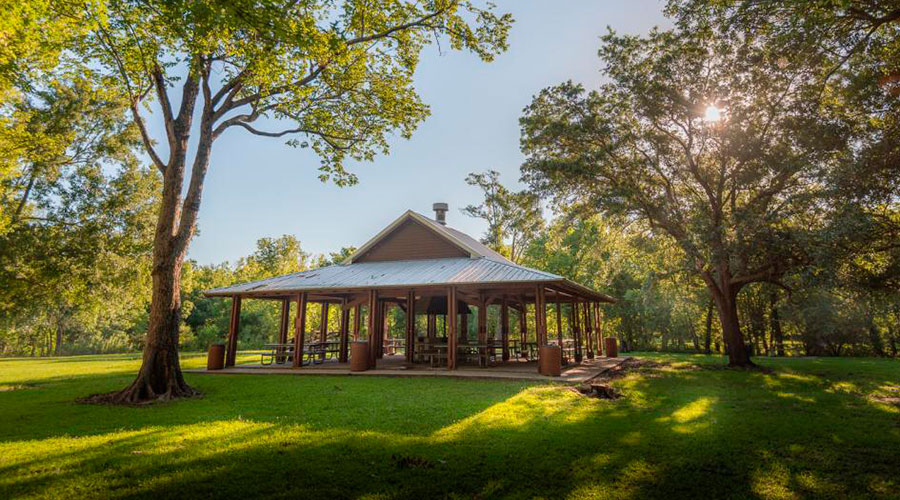
It’s no secret that the marshes along the lower Mississippi River are full of fish. One could even argue that this area has the best fishing in Louisiana.
One could also argue that the lower Mississippi River is where Louisiana was born.
Louisiana’s origin
In 1682, the explorer Sieur de LaSalle led an expedition down the river from Canada to the Gulf of Mexico. After reaching the Gulf, he returned upstream and on April 9 erected a large Christian cross on the right bank near modern-day Venice. There, LaSalle claimed for France all of the land drained by the Mississippi River and named it Louisiana in honor of King Louis XIV.
Seventeen years later, the Sieur d’Iberville led another expedition to establish a French colony near the mouth of the Mississippi. While exploring the Gulf coast, Iberville discovered and named Ship, Cat, Chandeleur and other barrier islands.
Leaving his large vessels at Ship Island, Iberville and a handful of men continued on to the Mississippi River in small boats. On Mardi Gras Day, March 3, 1699, he entered the river by way of Pass-a-Loutre (Otter Pass) and camped at the mouth of a tributary on the left bank near modern-day Fort Jackson. To honor the day, Iberville named the point of land Mardi Gras Point, and the tributary became known as Bayou Mardi Gras.

Somewhere between Fort Jackson and New Orleans, the Frenchmen noticed a large cloud of smoke rising from the east bank. Curious, they pulled over to check it out.
The men discovered that Indians had started fires on the prairie to drive buffalo into ambush points. Herds of buffalo roamed throughout much of Louisiana, and Iberville’s men killed several to eat.
The French later gave the parish its name when they built a military outpost there. The fort was surrounded by persimmon trees, which the Atakapa Indians called piakimin. That name was also used for the outpost but became corrupted over time to plaquemines, for which the parish was later named.
English Turn
One of the most important events in Louisiana history occurred on the river later in 1699.
The Sieur de Bienville was Iberville’s nineteen-year-old brother, and that summer he explored the area with a few men in two canoes. While coming down the Mississippi River, Bienville encountered an English warship in a curve just downstream from modern-day St. Bernard State Park.
Capt. Lewis Banks commanded the ship, and he told Bienville that he was there to establish an English colony on the Mississippi. Thinking quickly, young Bienville lied and told Banks that he was too late, that the French had been there for some time and had established a fort just upstream. If Banks went any farther, Bienville warned, he would be blown out of the water. Incredibly, without further investigation, Banks turned around and left.
Nineteen-year-old Bienville had saved the French colony, and the bend in the river where the English turned around and left Louisiana became known as English Turn.
Where to stay

In modern-day Louisiana, many like to explore the area and learn the rich history. St. Bernard State Park, located on the left bank of the Mississippi River near Braithwaite, is a good place to enjoy what the lower Mississippi River has to offer. Visitors can hike the scenic nature trail or launch boats at the nearby Caernarvon Boat Launch to fish the marsh.
The park has barbeque pits and picnic tables for cook-outs, restrooms, shower and laundry facilities, free wi-fi and a water park. There are also fifty-one campsites with water and electrical hookups and a dump station.